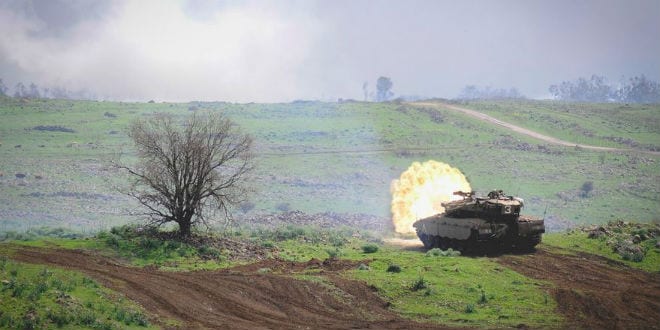
The IDF’s Northern Command reported this week that March was the most violent month in Northern Israel since the Second Lebanon War in 2006.

General Yair Golan, head of the Northern Command, said that “it is impossible to ignore the things happening on the Syrian border” as well as the border Israel shares with Lebanon. Gen. Golan described Israel’s northern region as “more tense and less stable.”
Speaking at a meeting with mayors of both Arab and Jewish municipalities in the north, Golan added that in spite of the instability, “it was still possible to sleep at night.” Channel 10 reported that he also said he placed his trust in regional leaders to work with Israeli security services when violence erupts.
Golan commented on the presence of both Israeli and Arab mayors. He said that communal leaders uniting together shows that “it’s possible to live in harmony and feel a sense of shared destiny.”
The general also addressed recent price-tag attacks in the north against both Israelis and Arabs. Golan characterized the attacks as “only vandalism, only racism” and called them a “disgrace.” He called on community members to work hard against these “extreme ugly acts.”
Israel has taken a much tougher stance when it comes to protecting its northern border. In March, the IAF reportedly carried out airstrikes against Syrian targets in retaliation for an attack carried out against IDF patrols near the Israel-Syria border.
IDF soldiers on patrol near the border fence were in their jeep when a hidden roadside bomb detonated, injuring the soldiers. The bomb was planted by terrorists who infiltrated the border. Hezbollah admitted that the terrorist attack was a failed kidnapping attempt against the IDF soldiers.
In response to the attack, the IDF modified its orders for soldiers stationed along the northern border. Soldiers have been ordered to immediately fire upon suspected infiltrators rather than identify and warn them, putting their lives in danger.




